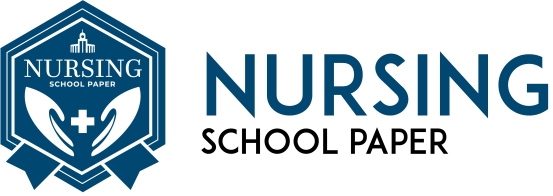
Discuss the concepts of epidemiology in disease control and prevention.
Disease Control and Prevention Essay
The purpose of this discussion post is to briefly review the concepts of epidemiology in disease control and prevention. I will also define and apply the ecoscoial epidemiology paradigm to obesity in my community.Disease Control and Prevention Essay Epidemiology means many things, but largely, it is the study of the health status in our community as determined by statistical information, probability and research (Nies & McEwen, 2015). Community health nurses use the concepts of epidemiology any time the nurse conducts, collects or analyzes data regarding diseases in the community, or uses data to help identify at risk groups in the community (Nies & McEwen, 2015).
Our reading this week discussed a variety of epidemiological models, methods and approaches. The data collected through epidemiology can identify diseases and infections, and trace these illnesses down to a single cause. In order to identify and resolve illness, the epidemiologist must first identify the problem, detect possible causes of the disease and the disease itself; determine how the illness is spread and finally, classify how people in the community become susceptible to the disease (Nies & McEwen, 2015, p. 70-72; Centers for Disease Control and Prevention [CDC], 2016).
ORDER A PLAGIARISM-FREE PAPER
Ecosocial epidemiology is a newer concept and describes diseases from a macro-level; meaning the health and disease status for a community rather than illness in just one patient (Nies & McEwen, 2015). An example of ecosocial epidemiology approach would be to discuss obesity in our community. In 2013, the American Medical Association (AMA) labeled obesity as a chronic disease; the WHO described obesity as an epidemic and reported that half-a-billion people in the world obese(Stoner & Cornwall, 2014). Obesity may be caused by numerous factors, including genetics, socioeconomic status or lack of education on healthy eating. Obesity is typically accompanied by other comorbid conditions such as diabetes mellitus type II, hypertension, and cardiovascular disease. The cost of healthcare for obese individuals is typically more than a non-obese person. The private practice office I work in sees a fair amount of patient’s whose symptoms can be attributed to obesity secondary to poor diet and income level.Disease Control and Prevention Essay
A community health nurse can examine obesity in the community from a macro-level perspective. As mentioned above, obesity can be connected to a person’s socioeconomic meaning the lower a person’s income or education level, the more at risk that person is for obesity (Bielemann, Santos Motta, Minten, Horta, & Gigante, 2014). Individuals with lower income are more likely to consume cheaper, convenient foods with large portion sizes (i.e., fast food, frozen dinners, boxed meals, chips, etc). These food items are readily accessible and are typically higher in calories, sodium, fat and sugars. The larger portion sizes can be seen as more value for the dollar. Another study showed that even with the application of food health labels, lower socioeconomic groups are more likely to purchase these unhealthy foods and reported that food labels can be seen as unclear and confusing (Hankey, 2015). A community health nurse can collect and analyze data from the community through surveys, questionnaires or interviews and compare the number of obese patients to their socioeconomic, education level and comorbid conditions.Disease Control and Prevention Essay This data can be used to provide interventions and education to this at risk population.
In conclusion, epidemiology is the study of health and disease of the entire community, and not one person. Ecosocial epidemiology looks at health and disease from a macro level and can incorporate multiple factors that may attribute to an illness. Obesity in our community can be viewed from a macro-level, secondary to the multiple risk factors, including socioeconomic status, education and existing medical conditions. Understanding epidemiology is important to community health nursing as this information can assist the nurse in focusing on disease prevention and education for at risk populations.Disease Control and Prevention Essay

